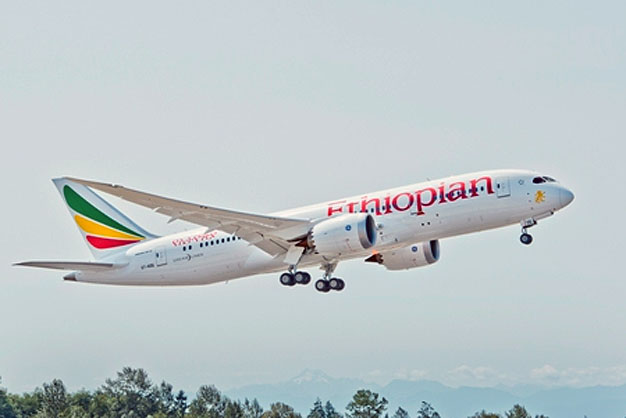
Global aviation is not in a good state. And the same can be said for Africa. After years of relative growth and an improved safety record, African aviation was just starting to find its wings.
But aviation is a fragile industry that is easily affected by adverse weather, terrorism, fluctuations in oil prices, poor government policies and health pandemics.
In January it became evident that the Covid-19 coronavirus was going to disrupt the global economy – and so it did.
Global airlines responded by cancelling flights to the Chinese mainland and using codeshare agreements and alliances to pick up and drop passengers in either Hong Kong or Taiwan.
The International Air Transport Association (Iata) said the virus has resulted in global airlines losing $200 billion.
On January 30, African airlines made a series of announcements about suspending services to China. RwandAir, Kenya Airways and Air Mauritius suspended all flights until further notice. SAA had already axed Hong Kong as a result of the airline’s own financial troubles.
The World Health Organisation declared Covid-19 a global pandemic days before it took a strong foothold in Africa.
African countries reacted by putting in place travel restrictions aimed at reducing the risk of a quick spread of Covid-19. South Africa has been the hardest hit African country, with the number of cases growing by the day.
Airlines and hotels have been hit hard and have started experiencing record low bookings and spiralling cancellations. SA Express was the first African airline to be pushed over the cliff by Covid-19. Although previously challenged, the travel restrictions and reduced load factors had made the operating environment all too problematic for the loss-making entity.
Airlines on the continent have been cancelling flights and reducing capacities. However, this has largely been in response to government measures to curb the virus.
The Djibouti government closed all airports; Mauritius did the same and Ghana imposed tough entry restrictions for nationals from high-risk countries, leading to the African giant Ethiopian Airlines to suspend service to 30 destinations.
TAAG Angola Airlines suspended international flights with immediate effect on March 19, RwandAir halted services and SAA announced the suspension of both international and domestic flights until May 31. For years African airlines have been flying on fumes and haemorrhaging money, with the exception of Ethiopian Airlines and perhaps one or two others.
Iata announced that African airlines had lost $4 billion because of Covid-19. In February and March Ethiopian Airlines lost a staggering $190 million. These service suspensions have put pressure on an already raptured industry.
Questions had been raised on whether the airlines would be able to navigate the Covid-19 tailwind?
The simple answer to that is no, not without government support.
Financially fragile airlines will find it difficult to return to service. Airline staff are being sent home on full pay and in some cases on reduced or no pay. SAA recently announced plans to sack almost 4 700 employees.
How can African aviation survive this?
Airlines are coming up with innovative ways to maintain load factors. Sales promotions have been the low-hanging fruit for most. Another method has been to allow passengers to change their travelling dates to a later date at no cost. What this essentially does is to enable airlines to retain the money paid for a ticket for immediate financial obligations, rather than reimbursing passengers.
African airlines will need to collaborate closely post-Covid-19’s enforced restrictions. Greater collaboration across the entire product cycle and value chain will lessen the burden for airlines. Codeshare agreements and alliances must be cultivated among African airlines. The suspension is an opportunity for them to re-engineer their business models and put emphasis on revenue generation.
Kenya Airways managers accepted a 35% salary cut and Ethiopian Airlines is considering reducing the number of casual workers and outsourced services. More airlines are expected to send staff on leave with or without pay.
The losses are not confined to airlines. Airports companies, regulators, air navigation companies, handlers and airports concessioners all face unprecedented financial losses. They need to find synergies with airlines to weather the storm.
Fang Liu, secretary-general of the International Civil Aviation Organisation, said: “Covid-19 is presenting states and operators with entirely new levels of systemic risk.”
Iata recently suggested areas into which governments could look to support airlines, such as tax relief, direct financial support and loans via guarantees and corporate bond markets.
It is comforting to note that the African Airlines Association has added its voice on this matter by saying: “The association urges African governments to consider the compensation of inevitable losses, the alleviation of exogenous operating costs and the subsidisation of African airlines to try to assure industry viability.”
Governments must put their total weight behind airlines because they play a pivotal role in economies through trade and commerce. To avoid a total collapse of the economy, governments must provide a stimulus package to all commercial airlines under their register, including private airlines such as Africa World Airlines of Ghana and Fastjet Zimbabwe.
Ndawana is the founder of Just African Aviation, an aviation media company. He can be contacted on Twitter on @Nunuraindawana and email snunurai@justafricanaviation.com
 | ||||||||||||||||||||||||||
Get in touchCity Press | ||||||||||||||||||||||||||
| ||||||||||||||||||||||||||
| Rise above the clutter | Choose your news | City Press in your inbox | ||||||||||||||||||||||||||
| City Press is an agenda-setting South African news brand that publishes across platforms. Its flagship print edition is distributed on a Sunday. |




 Publications
Publications
 Partners
Partners








